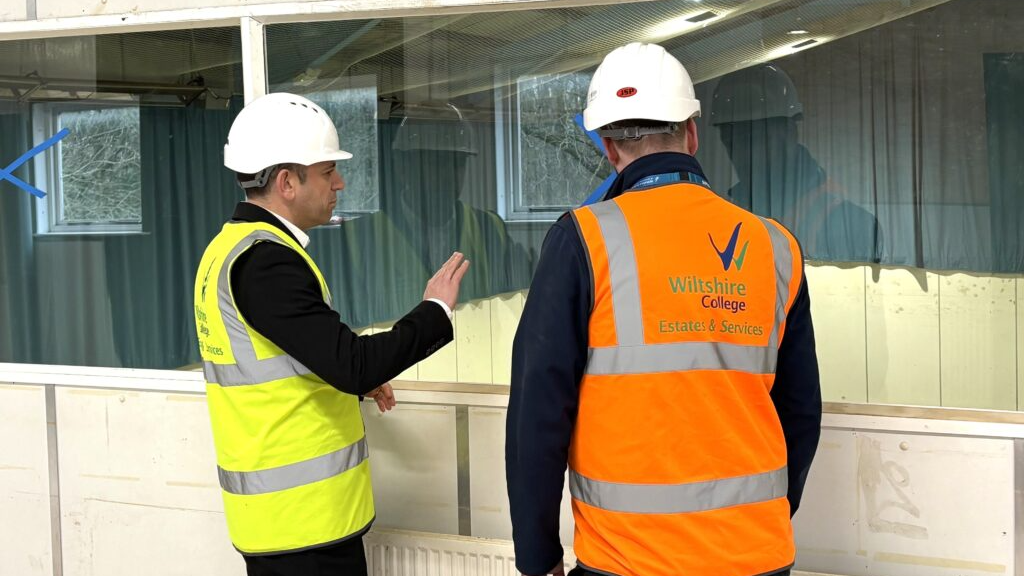Poo power introduced to college teaching farm
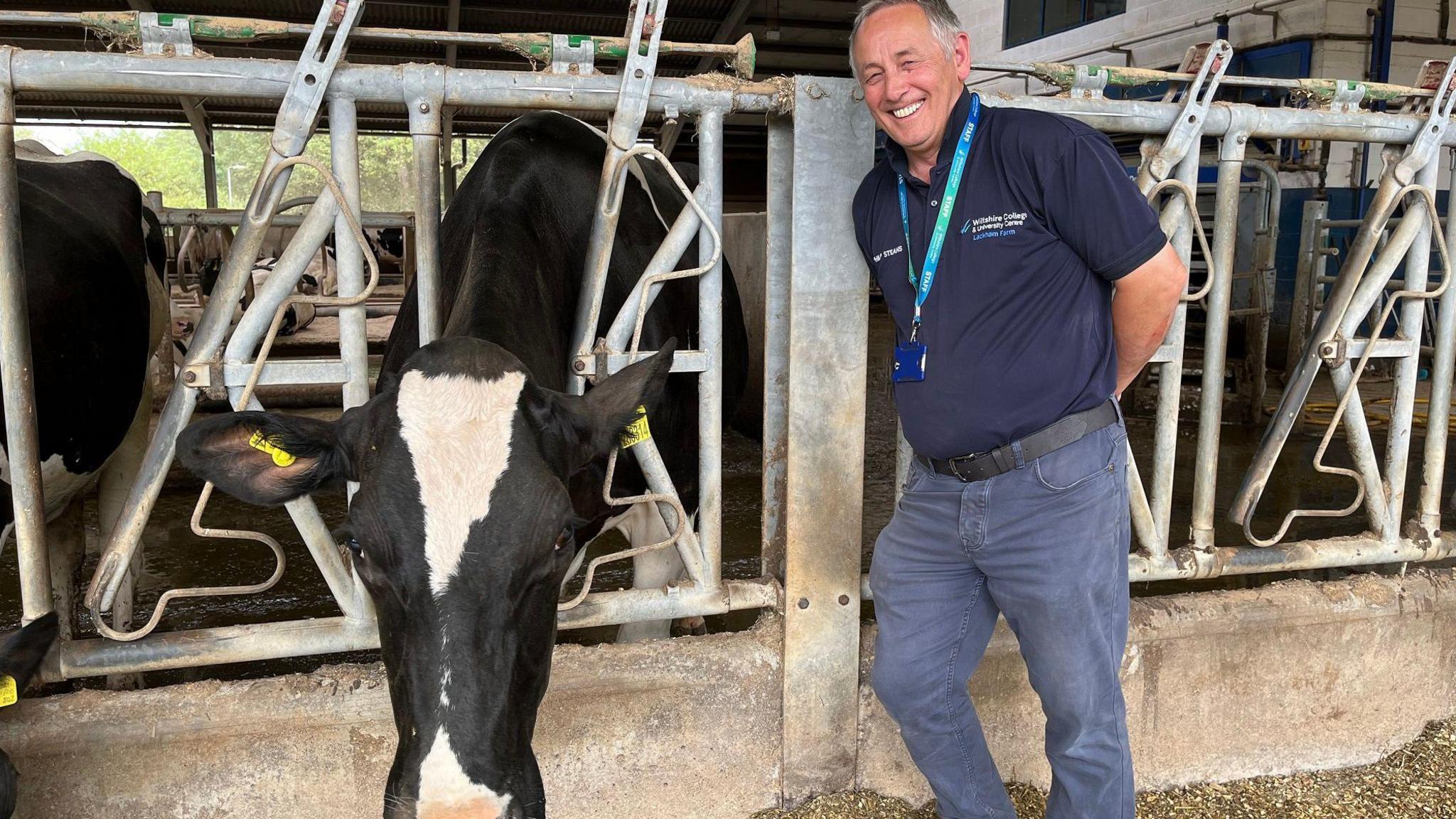
Farm manager Philip Steans has been wanting to get the digester for a while
- Published
A college farm has invested £275,000 in technology to turn poo into power for its robotic dairy.
The anaerobic digester at Home Farm, on Wiltshire College and University Centre's Lackham campus, takes five tonnes of slurry a day from the dairy and converts it into electricity and heat.
In conjunction with around 100 cows, it will be able to provide half of the energy needed to run and heat the robotic dairy, as well as reduce its carbon footprint.
Farm manager Philip Steans said the payback period will be four to eight years - "after that, it's all free".
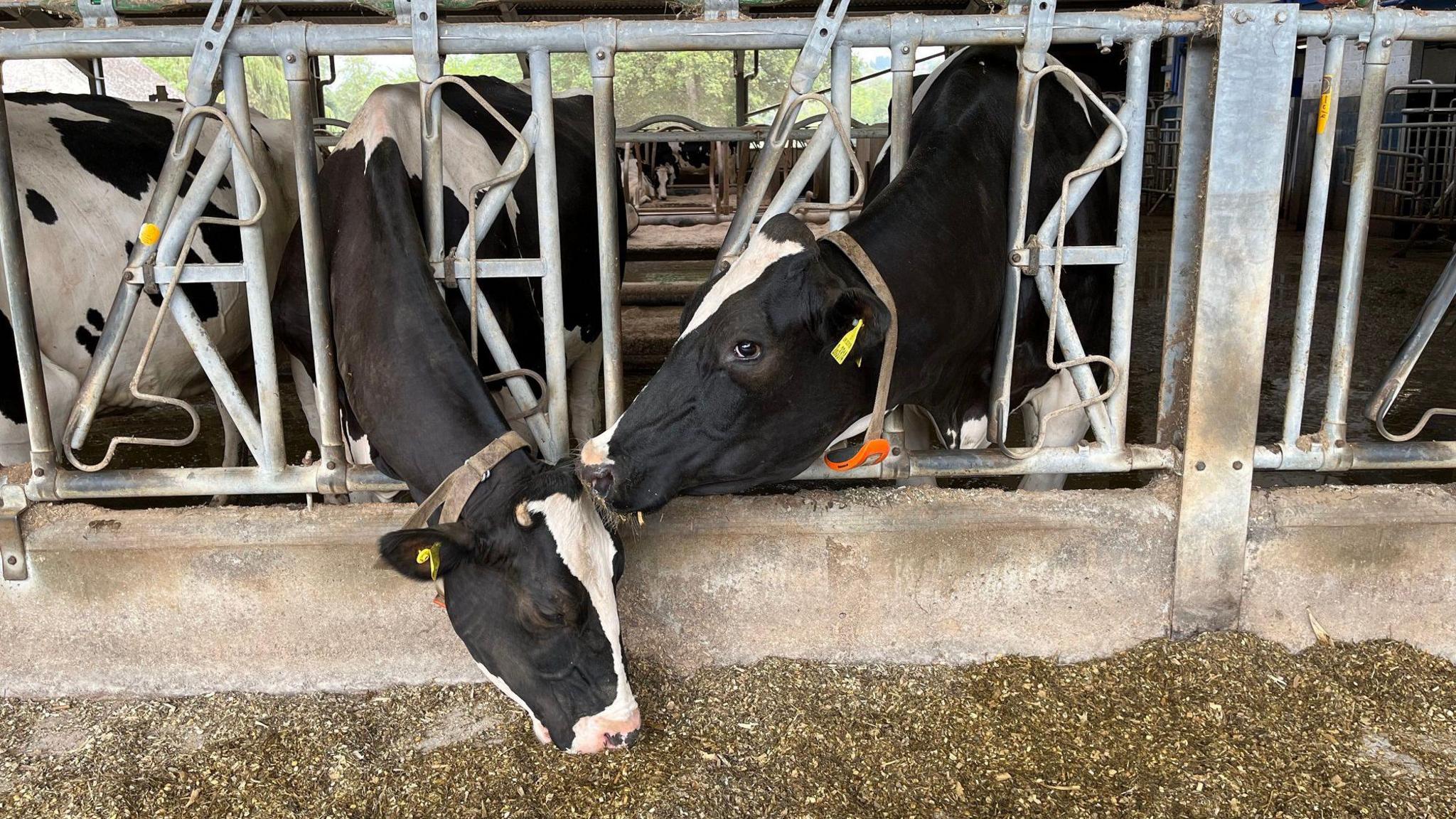
Some of the cows at the college farm use the robotic dairy
'They stand up, they poo'
The cows in the robotic dairy area know when they need to be milked and walk themselves into the automated milking bays.
It is so high-tech that robots travel around the floor, sweeping up all the slurry.
"They [the cows] produce a lot of poo. Every time they stand up, they poo. It gets scraped all day long into channels," explained Mr Steans.
It is a smelly business, but he said the new digester takes some of the odour away.
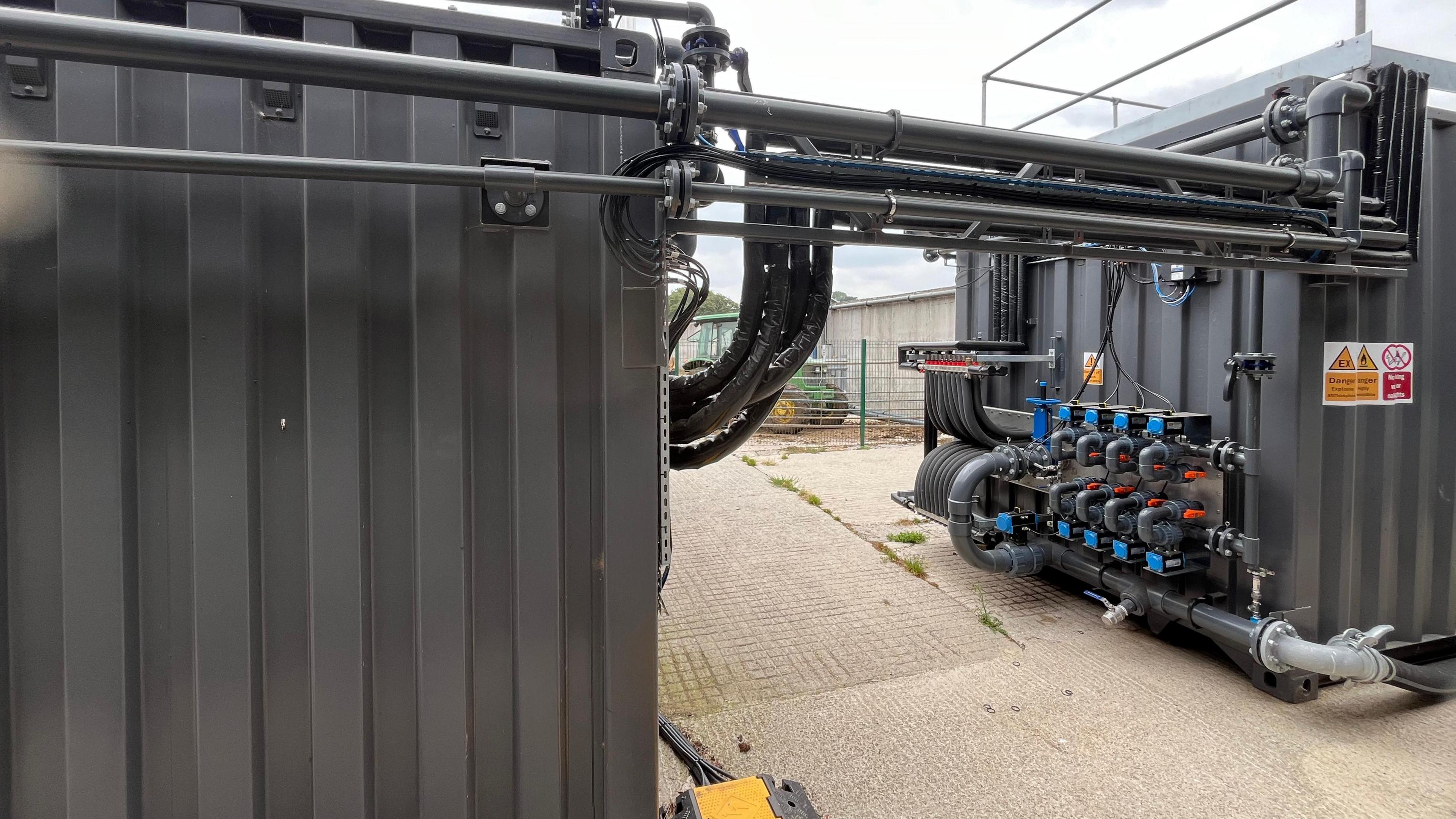
The digester sits beside the dairy, taking in five tonnes of slurry a day
The system, which involves heavily adapted shipping containers, has been installed by Bath firm BioFactory and uses microorganisms to convert the waste into methane, which is then used to make the power.
"The digester is heated up to a temperature of over 40 degrees, and it works like a cow's stomach. If you pump it in too quickly, it dies. The process is slow build-up." Mr Steans said.
'Great investment'
He said it has an added benefit of making the slurry better for muck spreading, as a lot of harmful bacteria is removed while retaining nutrients.
With the slurry free and a "relatively small" payback time, he sees this as a "great investment".
"I've been canvassing at the college for years to invest in this," he added.
The digester is also helping the college farm's sustainability, something that Mr Steans said now has to be a "major part" of teaching and farming.
"Most farmers now will assess the carbon footprint of their farm, then aim to reduce it with a huge amount of different methods. There's a lot of technical things we need to do," he said.
On Thursday, the BBC's Farmwatch project will be hearing more from farmers across the country, online and on local radio.
Get in touch
Tell us which stories we should cover in Wiltshire
Follow BBC Wiltshire on Facebook, external, X, external and Instagram, external. Send your story ideas to us on email or via WhatsApp on 0800 313 4630.
Related topics
- Published4 August
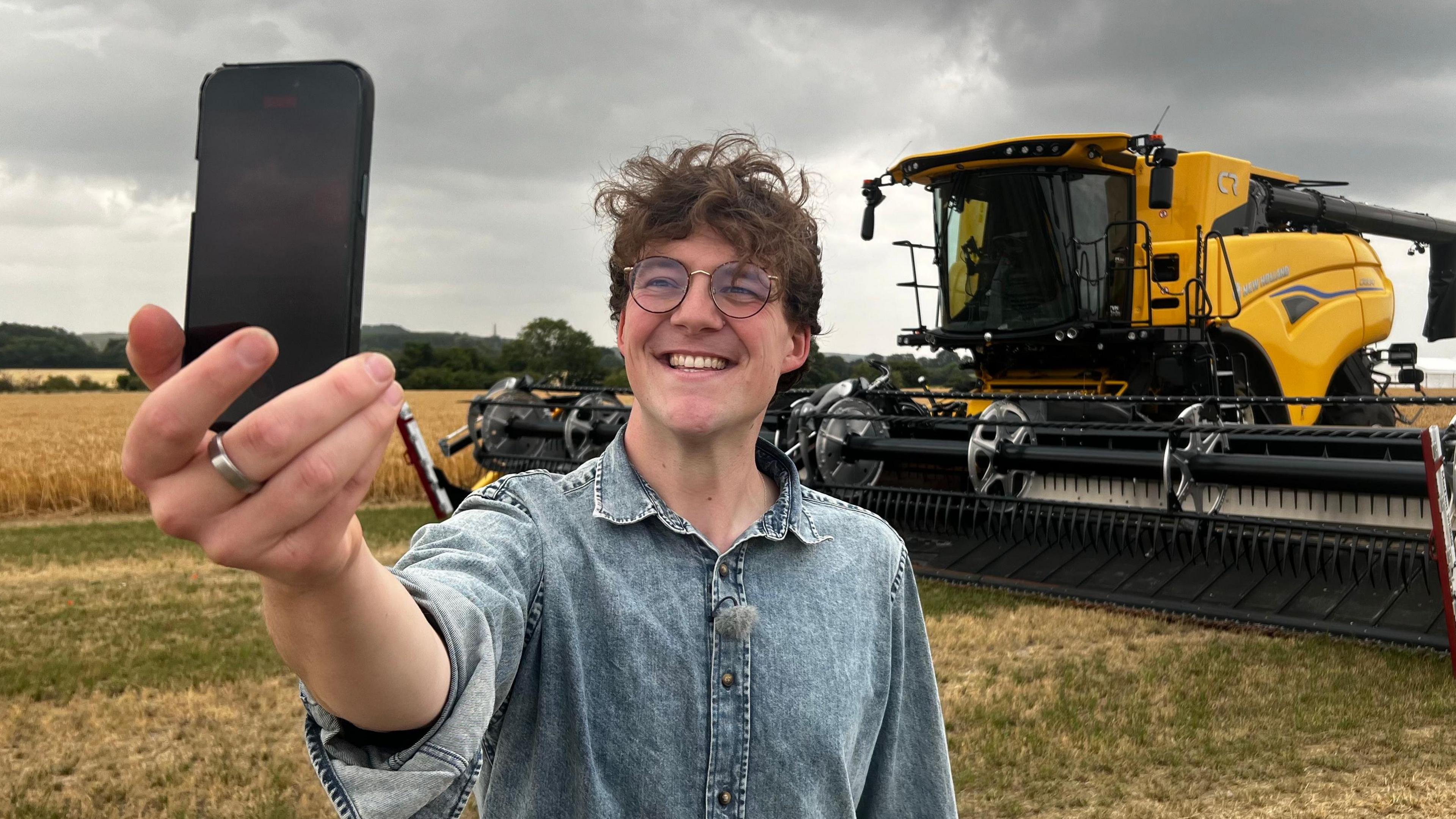
- Published10 April 2024

- Published12 March
